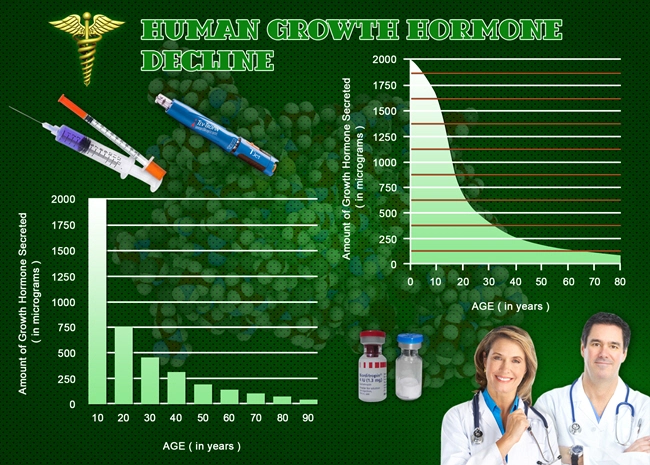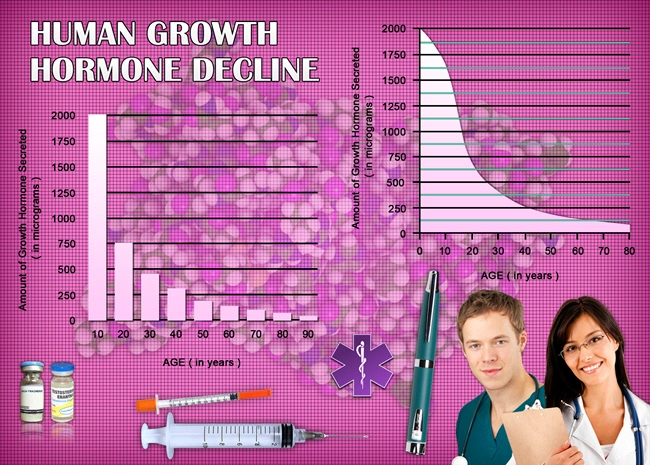
Introduction
Prostate health is a critical concern for American men, with prostate cancer being one of the most common cancers affecting this demographic. Recent studies have begun to explore the potential impact of environmental toxins on prostate health, particularly in relation to the development of prostate cancer. This article delves into a case-control study that examines the exposure to environmental toxins and its association with prostate cancer risk among American men.
Background on Prostate Cancer and Environmental Toxins
Prostate cancer is the second most common cancer among men in the United States, following skin cancer. It is estimated that one in nine men will be diagnosed with prostate cancer during their lifetime. While genetic factors and age are well-established risk factors, the role of environmental toxins has garnered increasing attention. Environmental toxins, such as pesticides, heavy metals, and industrial chemicals, are ubiquitous in modern life and can accumulate in the body over time, potentially leading to adverse health effects.
Methodology of the Case-Control Study
The case-control study involved 500 men diagnosed with prostate cancer and 500 men without the disease, matched for age and other demographic factors. Participants were asked to provide detailed information on their occupational history, residential history, and lifestyle factors. Blood and urine samples were collected to measure levels of various environmental toxins, including polychlorinated biphenyls (PCBs), phthalates, and heavy metals such as cadmium and lead.
Findings: Exposure to Environmental Toxins and Prostate Cancer Risk
The study found a significant association between exposure to certain environmental toxins and an increased risk of prostate cancer. Men with higher levels of PCBs in their blood had a 1.5-fold increased risk of developing prostate cancer compared to those with lower levels. Similarly, elevated levels of cadmium were associated with a 1.3-fold increased risk. Phthalates, commonly found in plastics and personal care products, were also linked to a higher risk, with a 1.2-fold increase observed in men with higher exposure.
Mechanisms of Action: How Environmental Toxins Affect Prostate Health
Environmental toxins can impact prostate health through various mechanisms. PCBs, for example, are known to disrupt hormonal balance, which can promote the growth of prostate cells. Cadmium, on the other hand, can mimic the effects of estrogen, potentially leading to cellular changes that increase cancer risk. Phthalates may interfere with androgen signaling, which is crucial for maintaining prostate health. These findings suggest that reducing exposure to these toxins could be an important strategy for preventing prostate cancer.
Implications for Public Health and Policy
The results of this study have significant implications for public health and policy. Efforts to reduce exposure to environmental toxins should be prioritized, particularly in industries and communities where exposure is high. This could involve stricter regulations on the use of pesticides and industrial chemicals, as well as increased public awareness about the potential health risks associated with these substances.
Recommendations for American Men
American men can take several steps to minimize their exposure to environmental toxins and protect their prostate health. Choosing organic produce, using natural personal care products, and avoiding plastics when possible can help reduce exposure to harmful chemicals. Regular screening for prostate cancer, especially for those with a family history or other risk factors, is also crucial for early detection and treatment.
Conclusion
The case-control study provides compelling evidence of the link between environmental toxins and prostate cancer risk in American men. By understanding the mechanisms through which these toxins affect prostate health, we can develop targeted strategies to reduce exposure and improve outcomes. As research in this field continues to evolve, it is essential for both individuals and policymakers to take proactive steps to safeguard prostate health and overall well-being.
Contact Us Today For A Free Consultation
Dear Patient,
Once you have completing the above contact form, for security purposes and confirmation, please confirm your information by calling us.
Please call now: 1-800-380-5339.
Welcoming You To Our Clinic, Professor Tom Henderson.

- Prostate Health in Aging American Men: Understanding Conditions and Maintaining Wellness [Last Updated On: March 4th, 2025] [Originally Added On: March 4th, 2025]
- Prostate Health: Key Foods to Reduce Cancer Risk and Promote Wellness [Last Updated On: March 17th, 2025] [Originally Added On: March 17th, 2025]
- Family History and Prostate Health: Understanding Genetic Risks and Early Detection [Last Updated On: March 18th, 2025] [Originally Added On: March 18th, 2025]
- Prostate Health and Heart Disease: Vital Connections for American Men's Health [Last Updated On: March 18th, 2025] [Originally Added On: March 18th, 2025]
- Prostate Cancer Survivorship: Navigating Life After Treatment for American Men [Last Updated On: March 19th, 2025] [Originally Added On: March 19th, 2025]
- Exercise Strategies for Enhancing Prostate Health in American Males [Last Updated On: March 19th, 2025] [Originally Added On: March 19th, 2025]
- Prostate Cancer's Psychological Impact on American Men: Diagnosis to Survivorship [Last Updated On: March 19th, 2025] [Originally Added On: March 19th, 2025]
- Prostate Cancer Screening: Balancing Benefits and Risks with Informed Decision-Making [Last Updated On: March 19th, 2025] [Originally Added On: March 19th, 2025]
- Prostate Health: Understanding Symptoms, Seeking Care, and Lifestyle Management [Last Updated On: March 20th, 2025] [Originally Added On: March 20th, 2025]
- Prostate Cancer Treatments: Understanding and Managing Side Effects in American Men [Last Updated On: March 20th, 2025] [Originally Added On: March 20th, 2025]
- Benign Prostatic Hyperplasia: Symptoms, Causes, and Management for American Men [Last Updated On: March 21st, 2025] [Originally Added On: March 21st, 2025]
- Chronic Stress and Prostate Health: Risks and Management Strategies for American Men [Last Updated On: March 21st, 2025] [Originally Added On: March 21st, 2025]
- Prostate Health: Risks, Diet, Exercise, and Early Detection Strategies for American Men [Last Updated On: March 21st, 2025] [Originally Added On: March 21st, 2025]
- Prostate Cancer's Impact on Fertility: Treatments and Preservation Strategies [Last Updated On: March 22nd, 2025] [Originally Added On: March 22nd, 2025]
- Exercise and Diet: Enhancing Prostate Health in American Males [Last Updated On: March 22nd, 2025] [Originally Added On: March 22nd, 2025]
- Alcohol Consumption's Impact on Prostate Health: Risks and Moderation Guidelines [Last Updated On: March 22nd, 2025] [Originally Added On: March 22nd, 2025]
- Radiation Therapy: A Key Treatment for Prostate Cancer in American Males [Last Updated On: March 22nd, 2025] [Originally Added On: March 22nd, 2025]
- Hormone Therapy's Role in Managing Prostate Cancer for American Men [Last Updated On: March 23rd, 2025] [Originally Added On: March 23rd, 2025]
- Vitamin D's Role in Prostate Health: Insights for American Males [Last Updated On: March 23rd, 2025] [Originally Added On: March 23rd, 2025]
- Prostate Cancer: Navigating Diagnosis and Support for American Men [Last Updated On: March 23rd, 2025] [Originally Added On: March 23rd, 2025]
- Immunotherapy Revolutionizing Prostate Cancer Treatment for American Men [Last Updated On: March 24th, 2025] [Originally Added On: March 24th, 2025]
- Pesticides and Prostate Health: Risks and Mitigation Strategies for American Males [Last Updated On: March 24th, 2025] [Originally Added On: March 24th, 2025]
- Active Surveillance: Managing Low-Risk Prostate Cancer in American Men [Last Updated On: March 24th, 2025] [Originally Added On: March 24th, 2025]
- Targeted Therapy: A New Hope in Prostate Cancer Treatment for American Men [Last Updated On: March 24th, 2025] [Originally Added On: March 24th, 2025]
- Avoiding Key Foods to Maintain Prostate Health in American Men [Last Updated On: March 24th, 2025] [Originally Added On: March 24th, 2025]
- Brachytherapy: Targeted Treatment for Prostate Cancer in American Men [Last Updated On: March 25th, 2025] [Originally Added On: March 25th, 2025]
- HIFU: A Promising Non-Invasive Treatment for Prostate Cancer in American Men [Last Updated On: March 25th, 2025] [Originally Added On: March 25th, 2025]
- Omega-3 Fatty Acids: A Key to Prostate Health in American Males [Last Updated On: March 25th, 2025] [Originally Added On: March 25th, 2025]
- Proton Therapy: A Targeted Approach to Prostate Cancer Treatment in American Men [Last Updated On: March 25th, 2025] [Originally Added On: March 25th, 2025]
- Chemotherapy's Role and Impact on American Men with Prostate Cancer [Last Updated On: March 25th, 2025] [Originally Added On: March 25th, 2025]
- Antioxidants and Prostate Health: A Comprehensive Guide for American Men [Last Updated On: March 25th, 2025] [Originally Added On: March 25th, 2025]
- Sleep Quality's Impact on Prostate Health: A Vital Connection for American Men [Last Updated On: March 25th, 2025] [Originally Added On: March 25th, 2025]
- Environmental Factors and Their Impact on Prostate Health in American Males [Last Updated On: March 25th, 2025] [Originally Added On: March 25th, 2025]
- Lycopene: A Key Nutrient for Prostate Health in American Men [Last Updated On: March 25th, 2025] [Originally Added On: March 25th, 2025]
- Prostate Cancer Stages and Grades: A Comprehensive Guide for American Men [Last Updated On: March 25th, 2025] [Originally Added On: March 25th, 2025]
- Chronic Inflammation's Impact on Prostate Health in American Males: Prevention and Awareness [Last Updated On: March 25th, 2025] [Originally Added On: March 25th, 2025]
- Heavy Metals and Prostate Health: Risks, Impacts, and Preventive Measures [Last Updated On: March 25th, 2025] [Originally Added On: March 25th, 2025]
- CyberKnife: Advanced Non-Invasive Treatment for Prostate Cancer in American Men [Last Updated On: March 26th, 2025] [Originally Added On: March 26th, 2025]
- Prostate and Bone Health: Vital Connections and Management Strategies for American Men [Last Updated On: March 26th, 2025] [Originally Added On: March 26th, 2025]
- Palliative Care's Vital Role in Enhancing Prostate Cancer Patients' Quality of Life [Last Updated On: March 27th, 2025] [Originally Added On: March 27th, 2025]
- Hydration's Vital Role in Prostate Health for American Males [Last Updated On: March 27th, 2025] [Originally Added On: March 27th, 2025]
- Prostate Cancer and Cryotherapy: A Minimally Invasive Treatment Option for American Men [Last Updated On: March 27th, 2025] [Originally Added On: March 27th, 2025]
- Vitamin E's Role in Prostate Health: Benefits and Considerations for American Males [Last Updated On: March 27th, 2025] [Originally Added On: March 27th, 2025]
- Photodynamic Therapy: A Promising, Less Invasive Treatment for Prostate Cancer in American Men [Last Updated On: March 27th, 2025] [Originally Added On: March 27th, 2025]
- Selenium's Role in Prostate Health: Benefits and Dietary Sources [Last Updated On: March 28th, 2025] [Originally Added On: March 28th, 2025]
- Plastics' Impact on Prostate Health: BPA, Phthalates, and Preventive Measures [Last Updated On: March 28th, 2025] [Originally Added On: March 28th, 2025]
- Zinc's Vital Role in Prostate Health for American Males: Benefits and Sources [Last Updated On: March 28th, 2025] [Originally Added On: March 28th, 2025]
- Green Tea Benefits for Prostate Health in American Males: Prevention and Management [Last Updated On: March 28th, 2025] [Originally Added On: March 28th, 2025]
- Chemoprevention Strategies for Prostate Cancer Prevention in American Men [Last Updated On: March 28th, 2025] [Originally Added On: March 28th, 2025]
- Air Pollution's Impact on Prostate Health: Risks and Mitigation Strategies [Last Updated On: March 29th, 2025] [Originally Added On: March 29th, 2025]
- Prostate Cancer Management: Understanding Watchful Waiting for Low-Risk Patients [Last Updated On: March 30th, 2025] [Originally Added On: March 30th, 2025]
- Prostate Cancer Surgery: Understanding Radical Prostatectomy and Its Impact [Last Updated On: March 31st, 2025] [Originally Added On: March 31st, 2025]
- Cruciferous Vegetables: Enhancing Prostate Health in American Males [Last Updated On: April 1st, 2025] [Originally Added On: April 1st, 2025]
- EMF Exposure and Prostate Health: Risks and Mitigation Strategies for American Males [Last Updated On: April 2nd, 2025] [Originally Added On: April 2nd, 2025]
- Robotic Surgery for Prostate Cancer: Benefits, Procedure, and Recovery Insights [Last Updated On: April 4th, 2025] [Originally Added On: April 4th, 2025]
- Focal Therapy: A Promising, Less Invasive Option for Prostate Cancer in American Men [Last Updated On: April 4th, 2025] [Originally Added On: April 4th, 2025]
- Endocrine Disruptors and Prostate Health: Risks and Mitigation Strategies for American Males [Last Updated On: April 7th, 2025] [Originally Added On: April 7th, 2025]
- Laparoscopic Surgery: A Minimally Invasive Option for Prostate Cancer Treatment [Last Updated On: April 8th, 2025] [Originally Added On: April 8th, 2025]
- Salvage Therapy: A Critical Approach to Managing Prostate Cancer in American Men [Last Updated On: April 8th, 2025] [Originally Added On: April 8th, 2025]
- Industrial Chemicals' Impact on Prostate Health: Risks and Prevention Strategies [Last Updated On: April 8th, 2025] [Originally Added On: April 8th, 2025]
- Flaxseed Benefits for Prostate Health: Cancer Prevention and BPH Relief [Last Updated On: April 10th, 2025] [Originally Added On: April 10th, 2025]
- Soy Isoflavones: A Dietary Approach to Enhancing Prostate Health in American Males [Last Updated On: April 10th, 2025] [Originally Added On: April 10th, 2025]
- Prostate Health Management: Balancing Pharmaceuticals and Quality of Life in American Males [Last Updated On: April 10th, 2025] [Originally Added On: April 10th, 2025]
- Pomegranate's Role in Enhancing Prostate Health: Nutritional Benefits and Research Insights [Last Updated On: April 12th, 2025] [Originally Added On: April 12th, 2025]
- Palliative Surgery for Advanced Prostate Cancer: Benefits, Risks, and Holistic Care [Last Updated On: April 12th, 2025] [Originally Added On: April 12th, 2025]
- Neoadjuvant Therapy in Prostate Cancer: Benefits, Side Effects, and Future Directions [Last Updated On: April 12th, 2025] [Originally Added On: April 12th, 2025]
- Adjuvant Therapy in Prostate Cancer: Enhancing Outcomes and Quality of Life [Last Updated On: April 13th, 2025] [Originally Added On: April 13th, 2025]
- Bisphosphonates: Enhancing Bone Health in Metastatic Prostate Cancer Management [Last Updated On: April 13th, 2025] [Originally Added On: April 13th, 2025]
- Denosumab: A Promising Treatment for Prostate Cancer in American Men [Last Updated On: April 14th, 2025] [Originally Added On: April 14th, 2025]
- RANK Ligand Inhibitors: A Promising Therapy for Prostate Cancer Bone Metastases [Last Updated On: April 15th, 2025] [Originally Added On: April 15th, 2025]
- Heavy Physical Work's Impact on Prostate Health: Risks and Mitigation Strategies [Last Updated On: April 15th, 2025] [Originally Added On: April 15th, 2025]
- Radium-223: A Targeted Therapy for Advanced Prostate Cancer in American Men [Last Updated On: April 16th, 2025] [Originally Added On: April 16th, 2025]
- Abiraterone: Revolutionizing Prostate Cancer Treatment in American Men [Last Updated On: April 16th, 2025] [Originally Added On: April 16th, 2025]
- Enzalutamide: A Key Advance in Prostate Cancer Treatment for American Men [Last Updated On: April 16th, 2025] [Originally Added On: April 16th, 2025]
- Ginger's Role in Supporting Prostate Health: Benefits and Dietary Integration [Last Updated On: April 16th, 2025] [Originally Added On: April 16th, 2025]
- Turmeric's Potential Benefits for Prostate Health in American Males [Last Updated On: April 17th, 2025] [Originally Added On: April 17th, 2025]
- Shift Work's Impact on Prostate Health: Risks and Mitigation Strategies for American Males [Last Updated On: April 18th, 2025] [Originally Added On: April 18th, 2025]
- Prostate Health Risks and Mitigation Strategies for Long-Haul Truckers [Last Updated On: April 19th, 2025] [Originally Added On: April 19th, 2025]
- Prostate Cancer: Symptoms, Diagnosis, Treatment, and Prevention Strategies for Men [Last Updated On: April 21st, 2025] [Originally Added On: April 21st, 2025]
- Obesity's Impact on Prostate Health: A 15-Year Epidemiological Analysis in American Men [Last Updated On: April 21st, 2025] [Originally Added On: April 21st, 2025]








